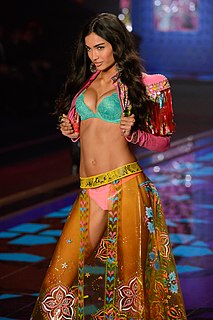A Quote by Melissa Leong
Milkbars were not only a crucial part of Australian food culture for nearly half a century, but also influenced the way many of us connected with neighbours.
Related Quotes
Well, I'm half Australian, half English and I live in London. That is the only reason I came upon this story. My Australian mother, Meredith Hooper, was invited in late 2007 by some Australian friends to make up a token Australian audience in a tiny fringe theater play reading of an unproduced, unrehearsed play called 'The King's Speech.'
Well, I'm half Australian, half English and I live in London. That is the only reason I came upon this story. My Australian mother, Meredith Hooper, was invited in late 2007 by some Australian friends to make up a token Australian audience in a tiny fringe theater play reading of an unproduced, unrehearsed play called 'The King's Speech.
Only part of us is sane: only part of us loves pleasure and the longer day of happiness, wants to live to our nineties and die in peace, in a house that we built, that shall shelter those who come after us. The other half of us is nearly mad. It prefers the disagreeable to the agreeable, loves pain and its darker night despair, and wants to die in a catastrophe that will set back life to its beginnings and leave nothing of our house save its blackened foundations.
Many teachers of the Sixties generation said "We will steal your children", and they did. A significant part of America has converted to the ideas of the 1960s - hedonism, self-indulgence and consumerism. For half of all Americans today, the Woodstock culture of the Sixties is the culture they grew up with - their traditional culture. For them, Judeo-Christian culture is outside the mainstream now. The counter-culture has become the dominant culture, and the former culture a dissident culture - something that is far out, and 'extreme'.
So many of my memories are generated by and organized around food: what I ate, what people cooked, what I cooked, what I ordered in a restaurant. My mental palate is also inextricably intertwined with the verbal part of my brain. Food, words, memories all twist together, so it was the obvious way to structure my life. Each memory of food opened up an entire scene for me, it was the key that unlocked everything.
You know, artists are influenced by other artists. We're all deeply influenced by what's around us; we don't make anything cold. Sometimes we think that we do. But within that, the most important part is that even though we're influenced, what are the levels of invention that we carry forth even as we've been influenced by something that's come before?






























